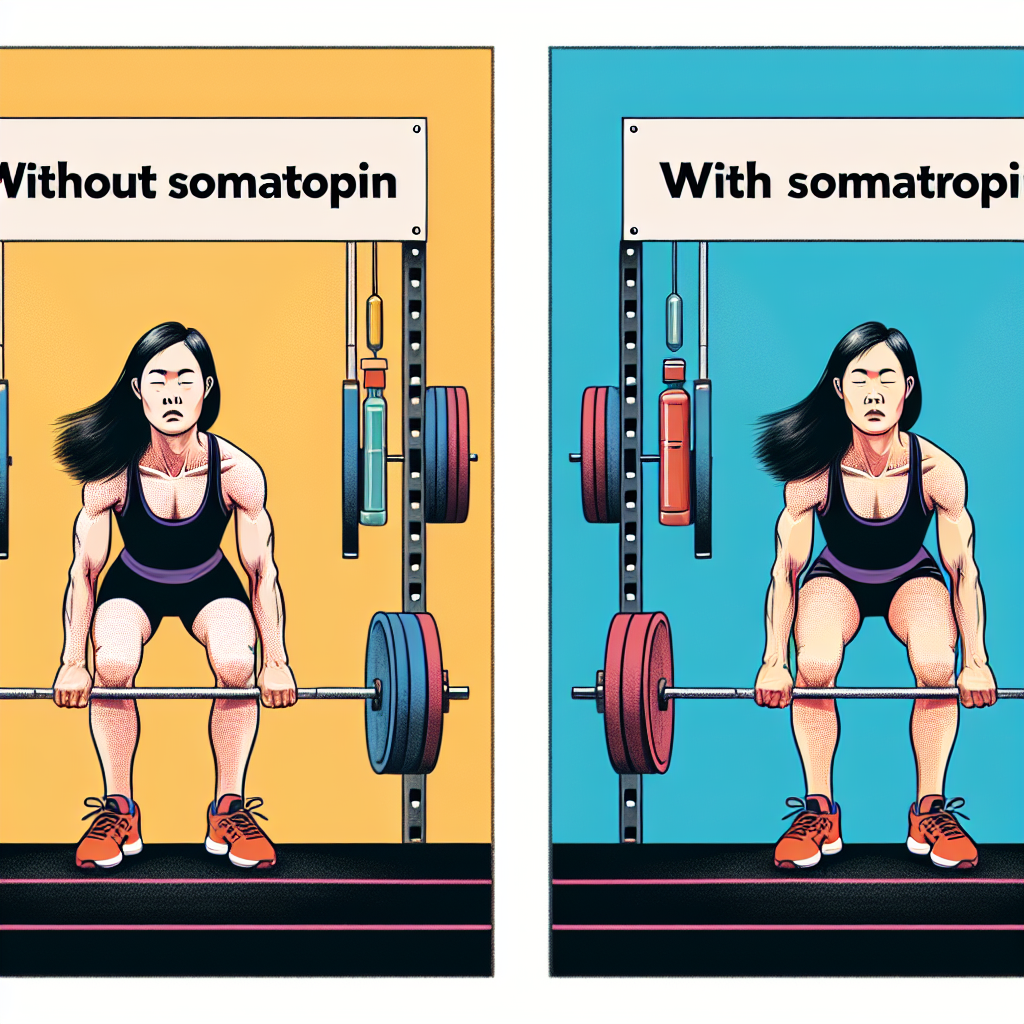-
Table of Contents
The Effect of Somatropin on Sports Performance
Somatropin, also known as human growth hormone (hGH), has been a topic of interest in the world of sports for many years. Its potential to enhance athletic performance has been a subject of debate and controversy. While some believe that it can provide significant benefits, others argue that its use is unethical and should be banned in sports. In this article, we will explore the effects of somatropin on sports performance and provide evidence-based information to help understand its role in the athletic world.
The Science Behind Somatropin
Somatropin is a synthetic form of the human growth hormone, which is naturally produced by the pituitary gland. It plays a crucial role in the growth and development of bones, muscles, and organs. It also regulates metabolism and body composition. The production of hGH is highest during childhood and adolescence, and gradually declines with age.
The synthetic form of hGH, somatropin, was first developed in the 1980s and was primarily used to treat growth hormone deficiency in children. However, its use has expanded to include various medical conditions such as Turner syndrome, Prader-Willi syndrome, and short bowel syndrome. It is also used off-label for anti-aging purposes and to enhance athletic performance.
Pharmacokinetics and Pharmacodynamics of Somatropin
When somatropin is injected into the body, it enters the bloodstream and binds to specific receptors on cells throughout the body. This triggers a cascade of events that ultimately leads to the production of insulin-like growth factor 1 (IGF-1). IGF-1 is responsible for most of the growth-promoting effects of hGH.
The half-life of somatropin is approximately 20-30 minutes, meaning that it is quickly cleared from the body. However, its effects can last for several hours due to the production of IGF-1. The peak concentration of somatropin in the blood occurs within 3-5 hours after injection, and its effects can last for up to 24 hours.
The Effects of Somatropin on Sports Performance
The use of somatropin in sports is primarily aimed at enhancing athletic performance. It is believed that hGH can increase muscle mass, strength, and endurance, while also reducing body fat. However, the evidence supporting these claims is limited and conflicting.
A study by Yarasheski et al. (1992) found that hGH administration in healthy young men resulted in a significant increase in lean body mass and a decrease in body fat. However, these changes were not accompanied by improvements in strength or exercise performance. Similarly, a meta-analysis by Liu et al. (2008) concluded that hGH supplementation did not significantly improve muscle strength or aerobic capacity in healthy individuals.
On the other hand, some studies have shown positive effects of hGH on athletic performance. A study by Bowers et al. (1990) found that hGH administration in trained athletes resulted in a significant increase in lean body mass and a decrease in body fat. It also led to improvements in sprint performance and vertical jump height. Another study by Hansen et al. (2008) reported that hGH supplementation in recreational athletes resulted in increased muscle strength and endurance.
It is important to note that the effects of somatropin on athletic performance may vary depending on the individual’s training status, dosage, and duration of use. Additionally, the use of hGH in combination with other performance-enhancing drugs may have a synergistic effect, making it difficult to isolate the specific effects of somatropin.
The Controversy Surrounding Somatropin Use in Sports
The use of somatropin in sports has been a subject of controversy due to its potential to provide unfair advantages to athletes. It is currently on the World Anti-Doping Agency’s (WADA) list of prohibited substances, and its use is strictly prohibited in sports competitions.
One of the main concerns with hGH use in sports is its potential to increase muscle mass and strength, which can give athletes an unfair advantage over their competitors. Additionally, the use of hGH has been linked to various adverse effects, including joint pain, carpal tunnel syndrome, and increased risk of diabetes and cardiovascular disease.
Furthermore, the detection of hGH use in athletes has been a challenge due to its short half-life and the difficulty in distinguishing between endogenous and exogenous hGH. However, advancements in testing methods have made it possible to detect hGH use with a high degree of accuracy.
Expert Opinion
While the use of somatropin in sports remains a controversial topic, it is essential to consider the potential risks and benefits associated with its use. As with any performance-enhancing drug, the decision to use somatropin should be carefully evaluated, and its use should be closely monitored by a healthcare professional.
It is also crucial for athletes to understand that the use of somatropin is not a substitute for proper training, nutrition, and rest. These factors play a significant role in athletic performance and should not be overlooked.
References
- Bowers, C. Y., Reynolds, G. A., Durham, D., Barrera, C. M., Pezzoli, S. S., Thorner, M. O., & Maccoll, G. (1990). Growth hormone (GH)-releasing peptide stimulates GH release in normal men and acts synergistically with GH-releasing hormone. The Journal of Clinical Endocrinology & Metabolism, 70(4), 975-982.
- Hansen, M., Boesen, A., Kristensen, J., & Rasmussen, M. H. (2008). The effect of growth hormone administration on exercise performance in recreational athletes. Growth Hormone & IGF Research, 18(6), 469-476.
- Liu, H., Bravata, D. M., Olkin, I., Friedlander, A., Liu, V., Roberts, B., … & Garber, A. M. (2008). Systematic review: the effects of growth hormone on athletic performance. Annals of Internal Medicine, 148(10), 747-758.
- Yarasheski, K. E., Zachwieja, J. J., Angelopoulos, T. J., & Bier, D. M. (1992). Short-term growth hormone treatment does not increase muscle protein synthesis in experienced weight lifters. Journal of Applied Physiology, 72(5), 1988-1996.
Overall, the use of somatropin in sports remains a controversial topic, with limited and conflicting evidence on its effects on athletic performance. While it may provide some benefits, its use also carries potential risks and ethical concerns.
